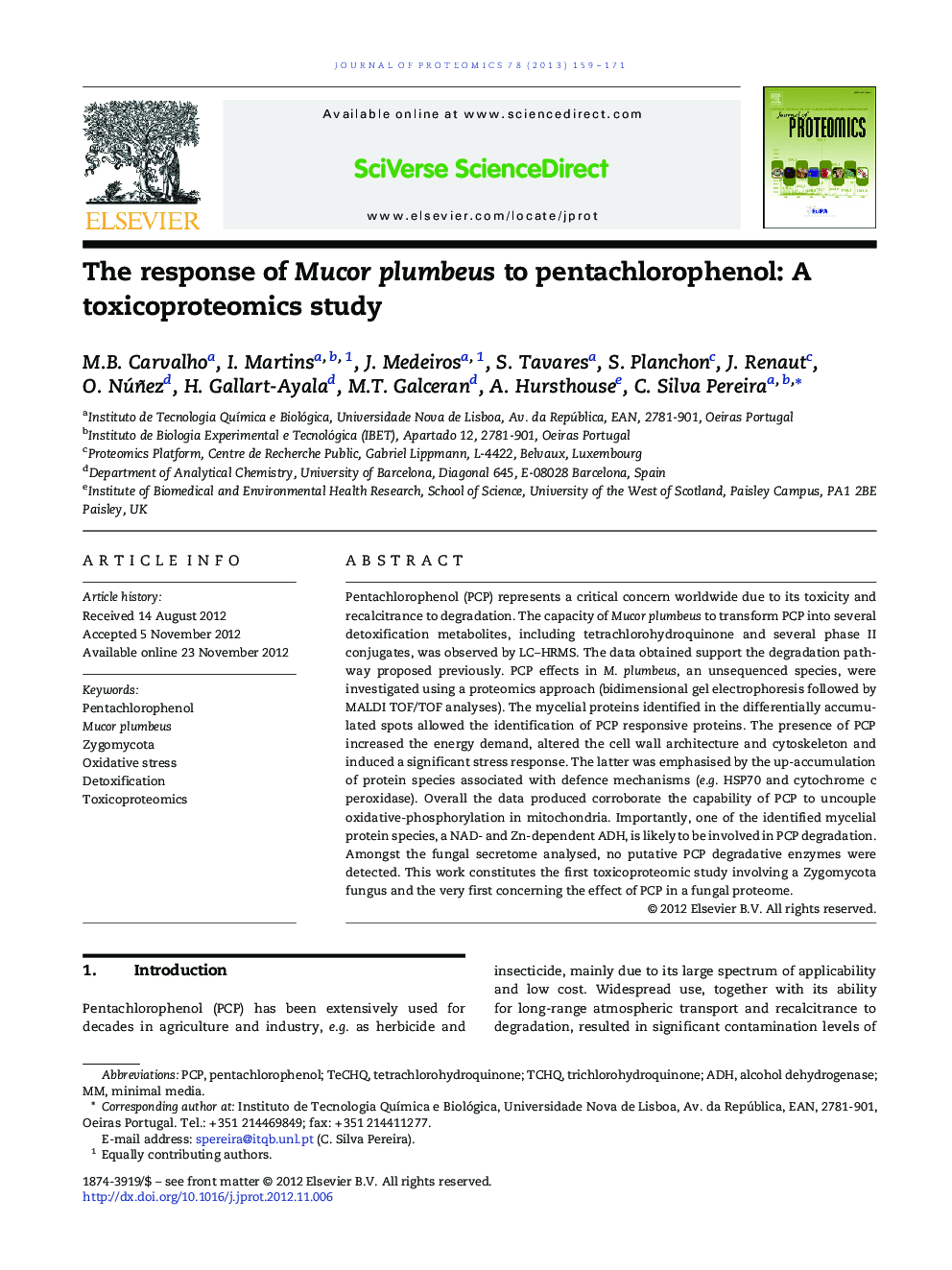| Article ID | Journal | Published Year | Pages | File Type |
|---|---|---|---|---|
| 1225575 | Journal of Proteomics | 2013 | 13 Pages |
Pentachlorophenol (PCP) represents a critical concern worldwide due to its toxicity and recalcitrance to degradation. The capacity of Mucor plumbeus to transform PCP into several detoxification metabolites, including tetrachlorohydroquinone and several phase II conjugates, was observed by LC–HRMS. The data obtained support the degradation pathway proposed previously. PCP effects in M. plumbeus, an unsequenced species, were investigated using a proteomics approach (bidimensional gel electrophoresis followed by MALDI TOF/TOF analyses). The mycelial proteins identified in the differentially accumulated spots allowed the identification of PCP responsive proteins. The presence of PCP increased the energy demand, altered the cell wall architecture and cytoskeleton and induced a significant stress response. The latter was emphasised by the up-accumulation of protein species associated with defence mechanisms (e.g. HSP70 and cytochrome c peroxidase). Overall the data produced corroborate the capability of PCP to uncouple oxidative-phosphorylation in mitochondria. Importantly, one of the identified mycelial protein species, a NAD- and Zn-dependent ADH, is likely to be involved in PCP degradation. Amongst the fungal secretome analysed, no putative PCP degradative enzymes were detected. This work constitutes the first toxicoproteomic study involving a Zygomycota fungus and the very first concerning the effect of PCP in a fungal proteome.
Graphical abstractFigure optionsDownload full-size imageDownload high-quality image (183 K)Download as PowerPoint slideHighlights► PCP effects in the proteome of a Zygomycota fungus were analysed for the first time. ► Mycelial proteins responsive to PCP exposure in Mucor plumbeus were detected by 2DE. ► PCP induced a significant stress response and increased energy demand. ► NAD- and Zn-dependent ADH is suggested to be involved in PCP degradation.
